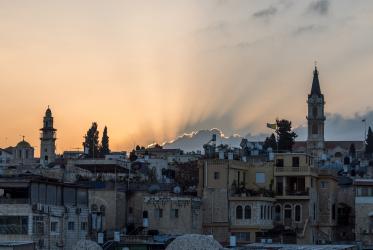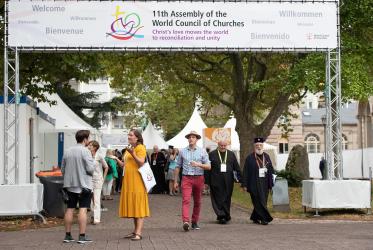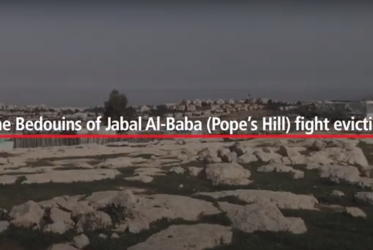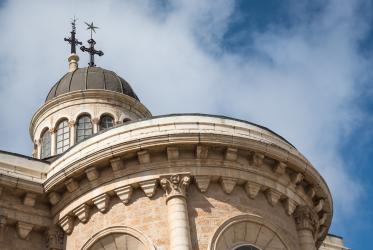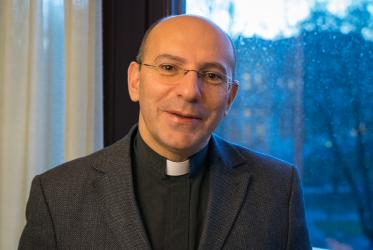Displaying 1 - 20 of 31
Easter Initiative 2024
01 March - 05 May 2024
Exhibition “Bethlehem Reborn – Palestine – The Wonders of the Nativity”
12 September - 05 October 2023
Ecumenical Center, Geneva, Switzerland
As Bethlehem prepares for Christmas, ‘it’s all about community’
08 December 2022
WCC-EAPPI Easter Initiative 2022
16 March - 17 April 2022
Video: Freedom to worship - Easter Initiative 2021
01 April 2021
Video: Khan Al Ahmar - Easter Initiative 2021
01 April 2021
Palestinian Christian peace worker yearns for courageous leaders
10 December 2020
A hopeful, but not optimistic Palestinian ecumenist
09 December 2020

